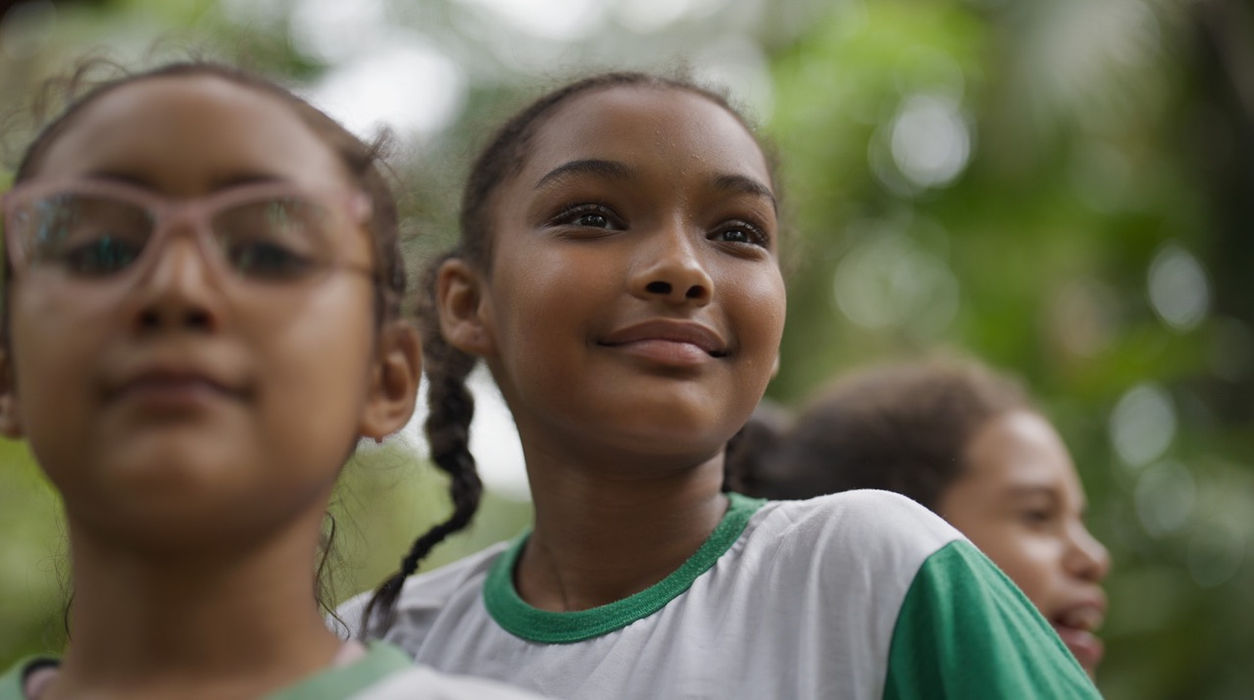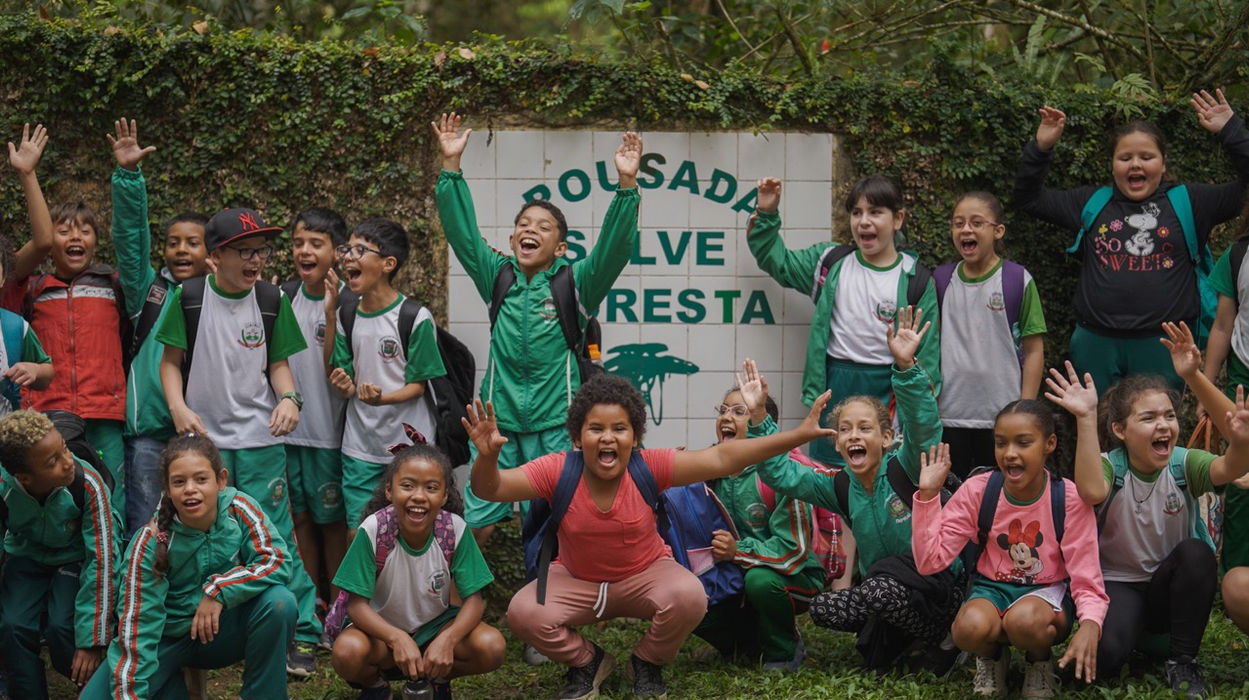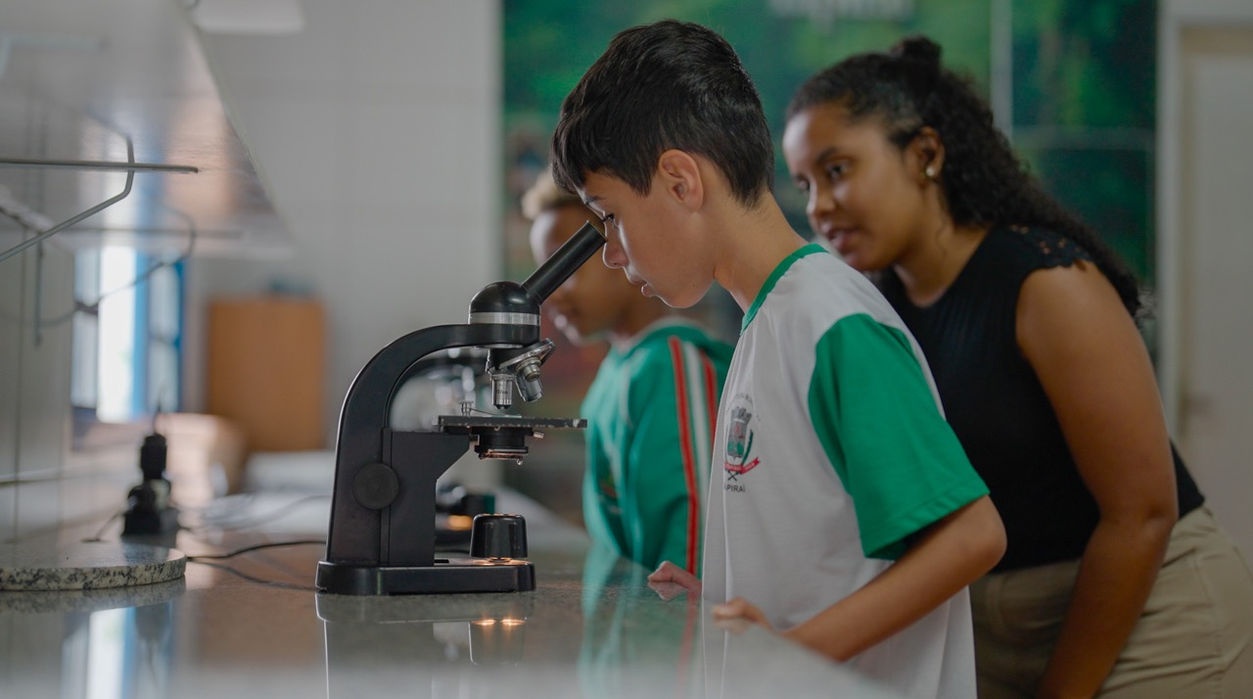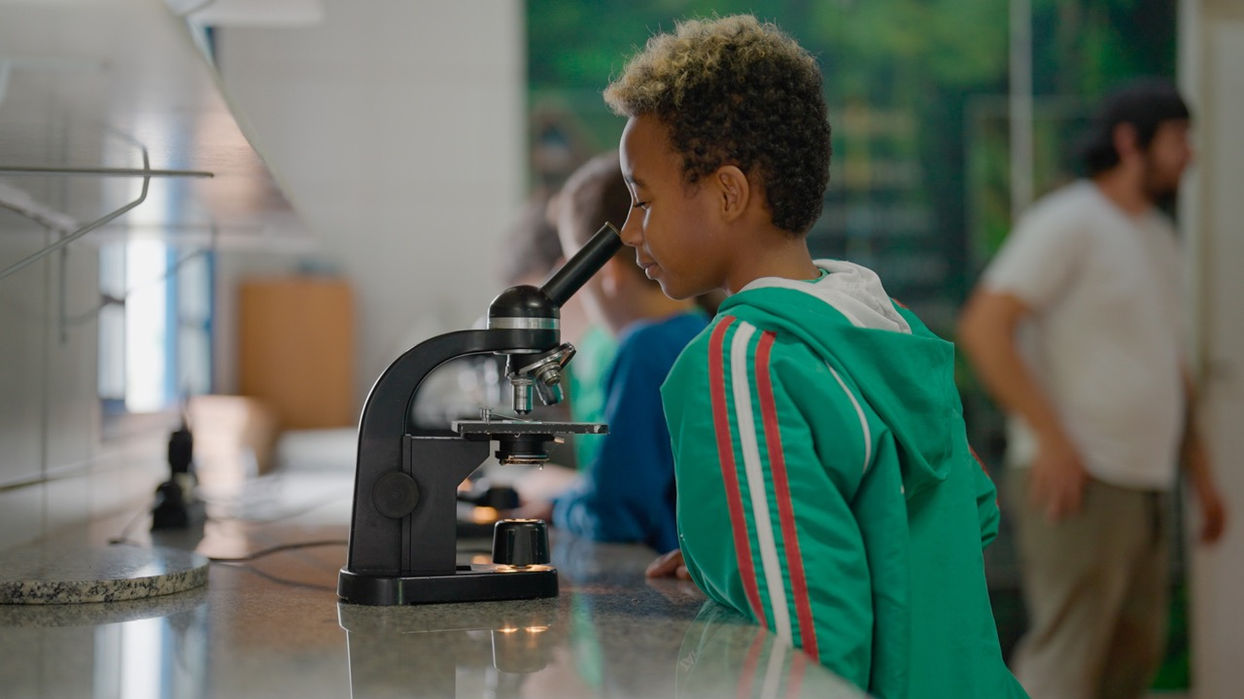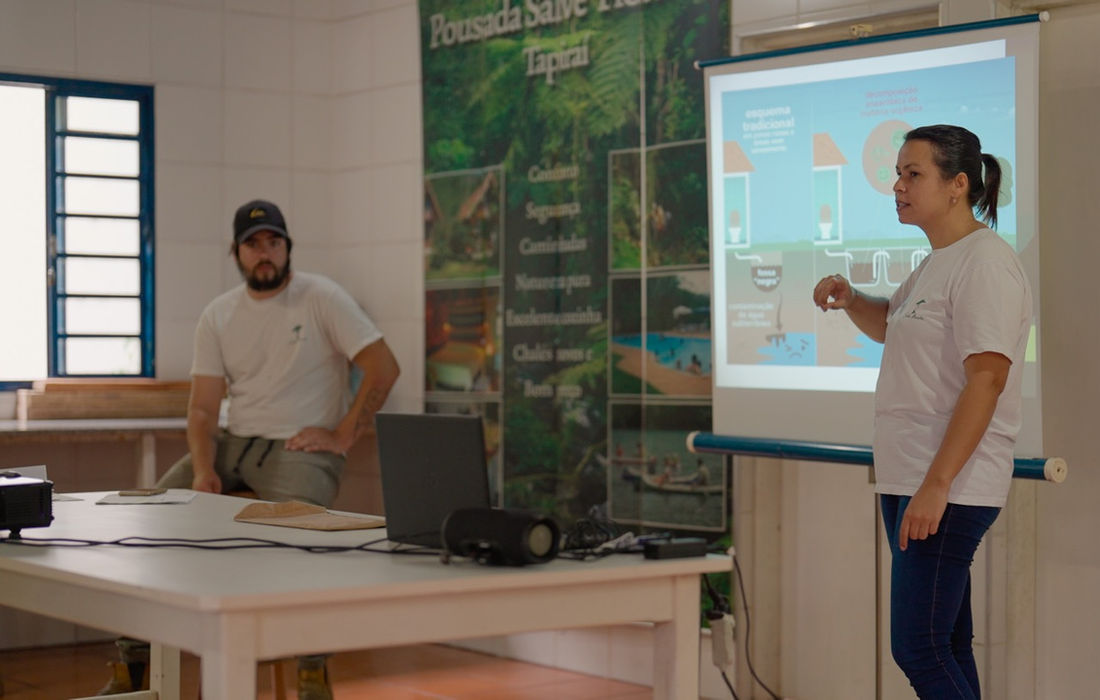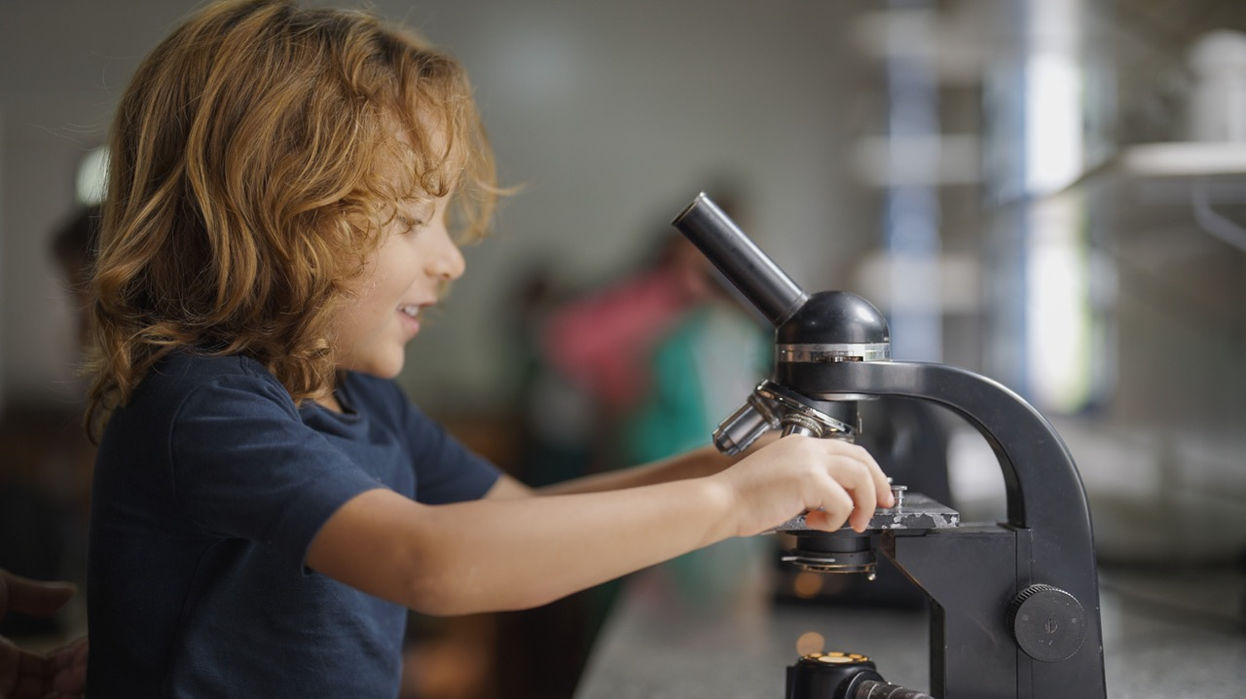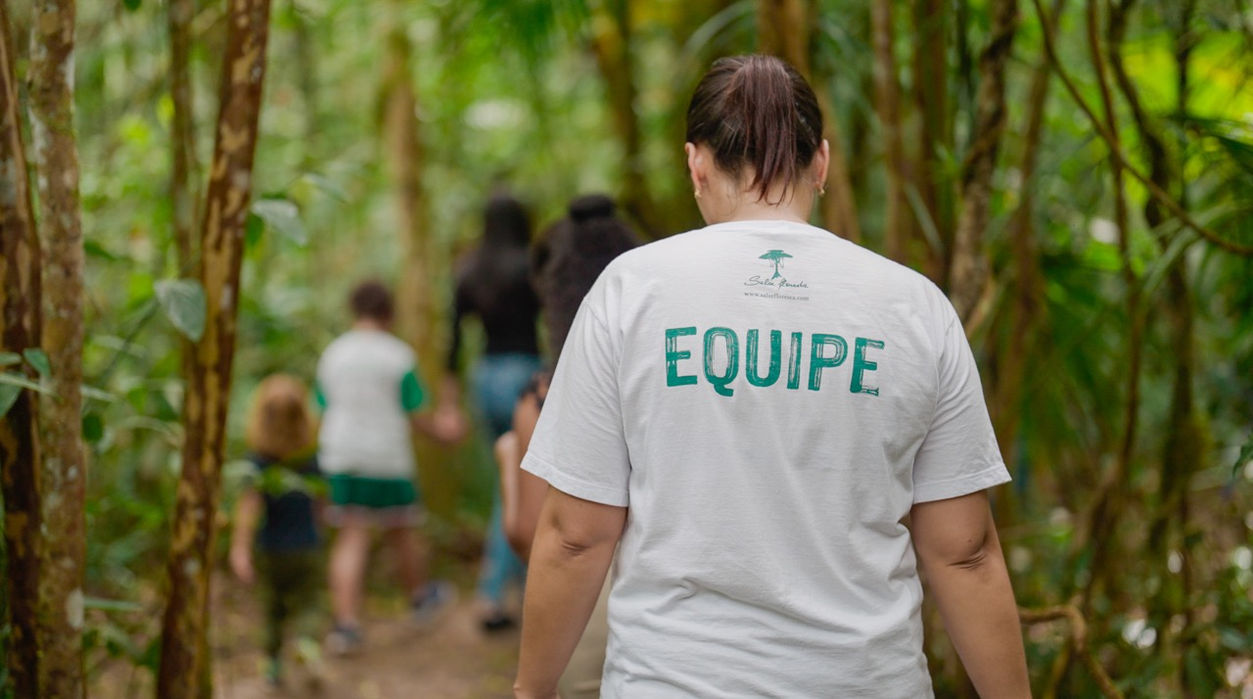
The objectives of the Salve Floresta association are environmental education, forest research and tropical forest conservation and reforestation projects.
The founder of the ecological initiative Salve Floresta and the Eco Lodge was the Brazilian sociologist and environmentalist Antonio Carlos Soares Pinto (PhD in Munich), who worked in the Amazon in the 1980s as a consultant for large environmental projects. He was confronted daily with the destruction of forests by the construction of large dams and witnessed how indigenous peoples and riverside communities were expelled from their lands and how huge quantities of flora and fauna were lost to flooding to form reservoirs. Then the idea was born elsewhere, initially as a small project to protect and preserve the Atlantic Forest. Near the town of Tapirai, west of São Paulo, in a still undamaged but threatened part of the Atlantic Forest, there was a landowner who wanted to sell part of it. This was so common after the 1992 environmental conference in Rio de Janeiro, because since then the rainforest has been protected by law and the owners have no longer been able to deforest or change their activities. Carlos Soares, together with his family, friends, volunteers and a few employees took a risky step forward and founded the “Rainforest Academy” in 1994. This initiative aimed to combine several objectives: to conserve and reforest forest areas, to educate people about ecological conditions and problems and to learn about this great Biodiversity.
The second connection was ecotourism and scientific tourism; it respects and promotes nature conservation and the local population. To date, many Europeans and Brazilians have participated in this project. The Europeans on study trips and the Brazilians, in part, as schoolchildren, students or weekend visitors. Since 1994, we have seen a significant improvement in the forest situation through sustainable tourism: • The project's environmental education work has increased the general sensitivity and awareness of the population. • The number of wild animals has increased. • The number of birds flying through the area has increased, and 370 bird species have now been catalogued and recorded in the region. • The theft of plants, palm hearts, birds and other animals has been significantly reduced by the constant attention of staff and guests walking through the forest.
Environmental education
What is environmental education for us? Environmental education is a process by which the individual and the community become familiar with social values, knowledge and skills of environmental conservation. And how sustainability, nature conservation and the careful use of nature can preserve our quality of life. For us, it is a constant educational activity, with which our visitors learn to understand their life in interaction with the surrounding nature. Our focus is on children and teenagers, during the walks the laws of nature are explained by specialized guides, making it easy for them to understand. The future of man is explained by seeing the way he uses the natural resources that surround him. In 2017, it was a happy year, as more than 600 school-age children participated in the environmental week at the Eco Lodge. The school can try to raise awareness among children through environmental education, in order to find new ways of understanding the ecological cycle, so that future generations work towards a more harmonious coexistence between human beings and the environment. Children must learn and understand from a critical perspective the principles with which our society has destroyed the environment and continues to destroy it.
For example, natural resources and different species are not inexhaustible and resources and reserves need to be used wisely. This, of course, includes instructions on waste prevention and recycling, which is one of the many vital changes for all of us. For the children, a day at the Eco Lodge also means outdoor fun: walking in the forest, climbing and playing, bathing in the waterfall, eating together in the restaurant, then exploring the plants brought to the laboratory and finally playing and swimming in the pool with their friends from school. The joy of the children is indescribable – their intensity and seriousness always surprises. The combination of play and intensive work, such as with the microscope, makes a “top-down” pedagogy superfluous. These children can be the guarantee of nature conservation and sustainability in the region – today and in the future. But it is not only the children from the city of Tapiraí who visit us for our environmental program, but also other groups come to experience this at the Eco Lodge Salve Floresta.
Average
We can still save Brazilian forests if we can change our environmental awareness.
Projects

One of the objectives of Eco Lodge Salve Floresta is the reforestation and restoration of deforested areas.

By regional integration and cooperation we understand activities to overcome the structural economic and social weaknesses of the Tapiraí region.








